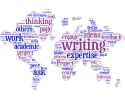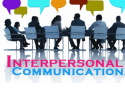TRCOA Associate's Degrees
Add the five General Education classes below to any one of our certificate programs (Recording Arts or Video / Audio Arts) to make the certificate an associates degree.
General education courses are required for accredited associate's degrees. We offer convenient online courses and small class sizes. Come see the difference at TRCOA!

Contemporary Mathematics
Contemporary Mathematics is designed to familiarize learners with fundamental mathematical concepts such as inequalities, polynomials, linear and quadratic equations, and logarithmic and exponential functions.

Introduction to Psychology
Psychology is the scientific study of the mind and behavior. Psychology is a multifaceted discipline and includes many sub-fields of study such areas as human development, sports, health, clinical, social behavior and cognitive processes.

United States History
United States History provides a comprehensive overview of the history of the United States, surveying the major events and turning points of American history as it moves from the America's cultural roots through modern times.

English Composition
English Composition is the study of fundamental reading and writing concepts and skills. Reading comprehension, grammar, the writing process, citing sources, and writing effectively to communicate ideas in a professional environment are among the topics covered.

Interpersonal Communication
Interpersonal Communication focuses on the theories and practices of one-on-one human communication with an emphasis on diversity of relationships and varying environments.
Recording Arts Associate's Degree
Everything in the Recording Arts Program is included in and required for the Recording Arts Associate's Degree. You'll also have five additional general education classes, listed above.
View Recording Arts Program course content here.
We listen to your goals and strive to help you reach them with the following educational objectives:
- To provide a one-on-one mentorship learning environment with real industry professionals
- To provide a hands-on learning environment using industry standard technology and techniques
- To bridge the gap between real, working professional situations and our classroom walls
- To provide services for placement and counseling for current students and alumni
- To create a space for our students to grow into working professionals
Graduates of our Recording Arts Associates degree program will be more employable with better reading, writing, communication and analytical skills.
The Recording Arts Associate's Degree program combines the music production courses that will train you to be an audio engineering entrepreneur, plus the general education classes to give you additional reach and impact in the workforce.
Because of our mentorship approach, The Recording Conservatory is where truly passionate students are coming to jump start a vibrant career in the music industry. We take special care to create close relationships with each student.
Video / Audio Arts Associate's Degree
Everything in the Video / Audio Arts Program is included in and required for the Video / Audio Arts Associate's Degree. You'll also have five additional general education classes, listed above.
View Video / Audio Arts Program course content here.
We listen to your goals and strive to help you reach them with the following educational objectives:
- To provide a one-on-one mentorship learning environment with real industry professionals
- To provide a hands-on learning environment using industry standard technology and techniques
- To bridge the gap between real, working professional situations and our classroom walls
- To provide services for placement and counseling for current students and alumni
- To create a space for our students to grow into working professionals
Graduates of our Video / Audio Arts Associates Degree will be more employable with better reading, writing, communication and analytical skills.
The Video / Audio Arts Associate's Degree combines the video and music production courses that will train you to be an video production entrepreneur, plus the general education classes to give you additional reach and impact in the workforce.
Because of our mentorship approach, The Recording Conservatory is where truly passionate students are coming to jump start a vibrant career in the video / audio industry. We take special care to create close relationships with each student.




